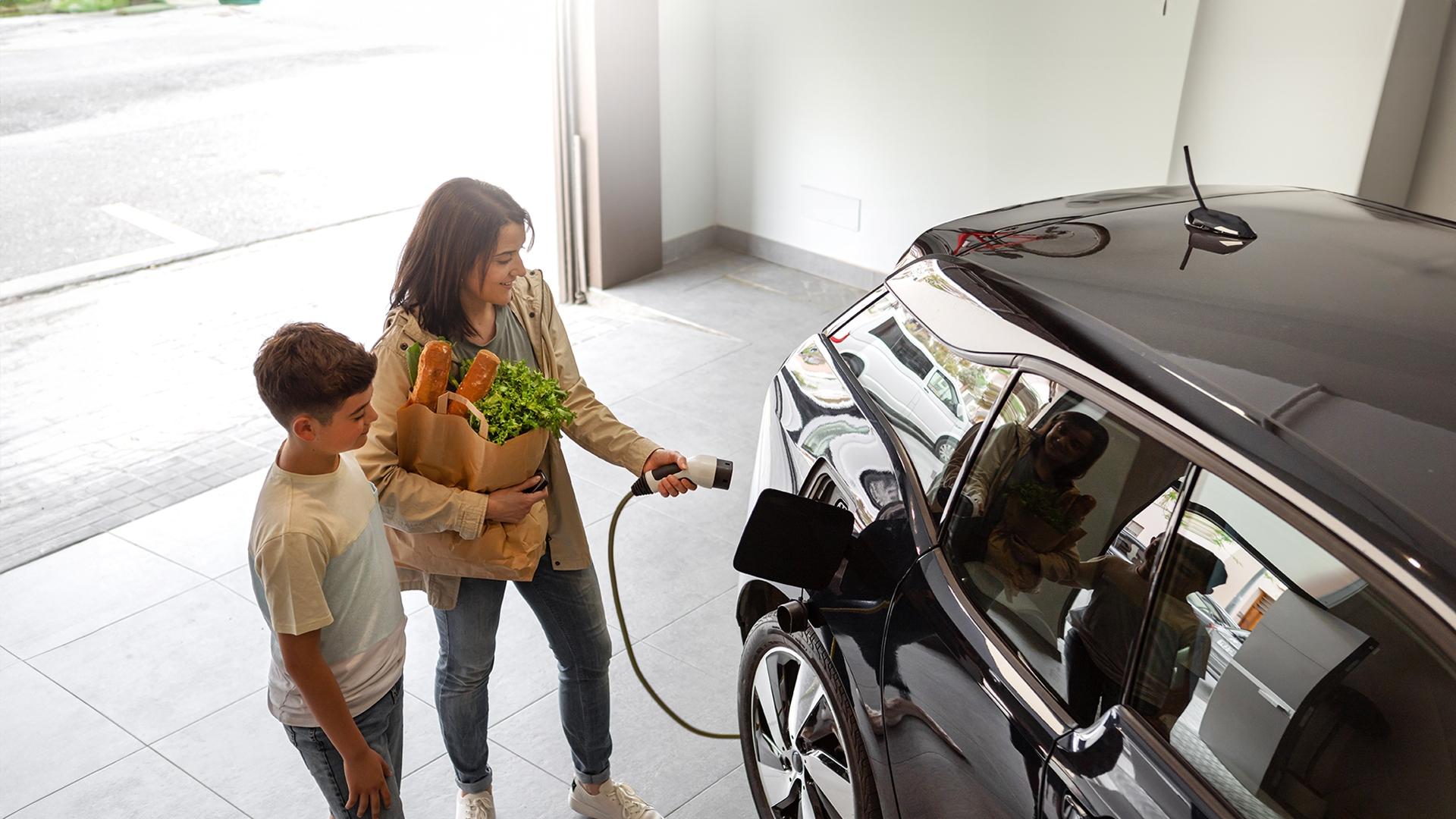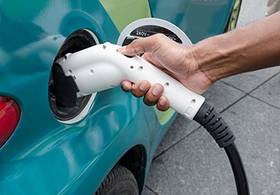Home EV charging station: Buying and installation guide

Learn how to choose and buy a home EV charging station for your house or condo. Discover the different types of standard EV chargers, their charging power, available EV charger rebates, and installation requirements.
How to choose a home EV charging station
A wide range of manufacturers, including several from Quebec, offer residential EV charging stations for electric vehicle (EV) drivers. These chargers come in two formats: wall-mounted or pedestal.
Most EV chargers can be installed either indoors or outdoors. They require a dedicated 240V power supply connected to your home’s electrical panel.
What charging power should you choose?
CAA-Quebec recommends choosing the fastest and most powerful Level 2 charging station that your electrical system can support.
30 amps (7.2kW): The most common type, compatible with many electric vehicle models.
Charging time: about 9 hours for 400km.
40 amps (9.6kW): Faster charging speed.
Be sure to check your vehicle’s compatibility with this charger.
Types of EV charging connectors
In Quebec, most EVs are compatible with Level 2 chargers that use the J1772 connector, the standard for AC charging.
Before installing a charger at home, confirm that your vehicle supports the charger’s connector type.
Smart charger or standard charger?
Planning to install an EV charger at home? You have two main options: standard or smart.
Standard chargers provide basic charging with no added features—sufficient for everyday home use.
Smart EV chargers are especially helpful in homes with more than one EV. They offer advanced features like:
Scheduled charging for cost effectiveness
Electric power management to prevent overload
Connectivity with mobile charging apps for usage tracking
How much does a home EV charger cost?
Prices range from $800 to $1500 and vary depending on options and build quality. Factor in installation by a licensed electrician as well.
Government incentives for home EV chargers
The Quebec government provides financial assistance on new home EV chargers through its Roulez vert program, covering the purchase of a new 240V unit. This financial assistance for EV chargers will gradually be phased out by the end of 2027. Some municipalities offer additional incentives. Check with your local authorities!
To receive assistance, you must provide proof of eligible expenses and meet specific requirements—most importantly, being the owner or leaser of an electric vehicle or plug-in hybrid.
Where to buy your EV charging station
Through a certified electrician
At the CAA-Quebec Boutique, where members earn CAA Dollars
From your automobile dealership
Naturally, these costs are important to consider when purchasing an electric car.
Installing an EV charger at home
The Quebec Building Code requires that electrical work be completed by a master electrician who holds a licence from the Régie du bâtiment du Québec. You can find some in CAA-Quebec’s network of Approved Residential Suppliers.
Concerned about handling a high-voltage connector? Don’t worry: EV chargers are equipped with a ground fault circuit interrupter (GFCI) to reduce the risk of electric shock.
In addition, the plug only becomes energized once it’s securely inserted into the vehicle. The charging connector is sealed against weather, and a locking mechanism prevents accidental disconnection if the cable is tugged.
Installing an EV charger in a condo or apartment
Living in a condo or apartment? You’ll need approval from your condo board or landlord to install an EV charging station.
They may view it as a value-added upgrade to the property—and other residents might be interested in sharing the cost!
Like home installations, you’ll need a certified electrician, and government rebates may apply. Unlike individual residences, you don’t need to own an electric vehicle to qualify for this rebate.
Buying a new condo?
Some new buildings already have the electrical infrastructure to support 240V EV chargers. Some technologies even allow your EV’s energy use to be billed directly to your condo unit—without rewiring the entire system.
Otherwise, you can still use nearby public EV charging stations. Either way, explore your options!
Renovating or building a new home? Plan for EV charging
As electric vehicles become more popular, installing an EV charger at home may soon be a requirement for all new residential construction.
Planning a home renovation or building a new house? Make room in your electrical system for a charger—it’s a smart move for the future.
Want to charge your EV without a charger?
It’s possible! All EVs and plug-in hybrids sold in North America are compatible with the SAE J1772 connector, allowing charging from a standard 120V household outlet.
Is charging on 120V a good idea?
Automakers advise against using 120V charging as your daily method—even if it seems convenient. For example, charging a 400km lithium-ion battery from empty could take up to 70 hours per charging session!
This setup may work for plug-in hybrid vehicles, but even then, a full charge on an 80km battery could take up to 12 hours.
That’s why 120V charging should be seen as a backup charging option, not a long-term solution. Speaking of solutions, check out how to fix the 6 most common EV charging problems.
Need personalized advice about a vehicle or a house?

Mobility Advisory Services
Do you have questions about gas-powered or electric vehicles, driving, or need recommendations to find an Approved Auto Repair Service?
Residential Advisory Services
Get answers to your questions about your home or recommendations for finding a CAA-Quebec Approved Residential Supplier.
